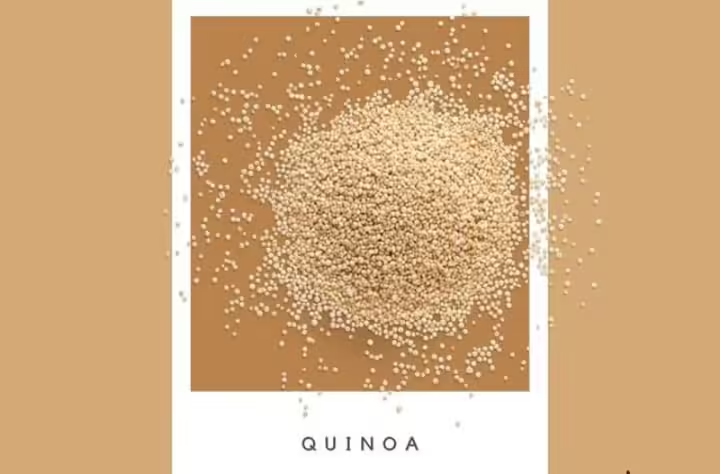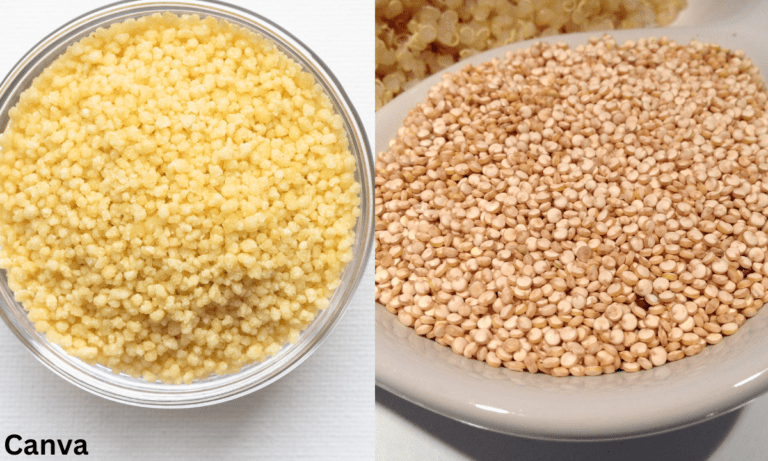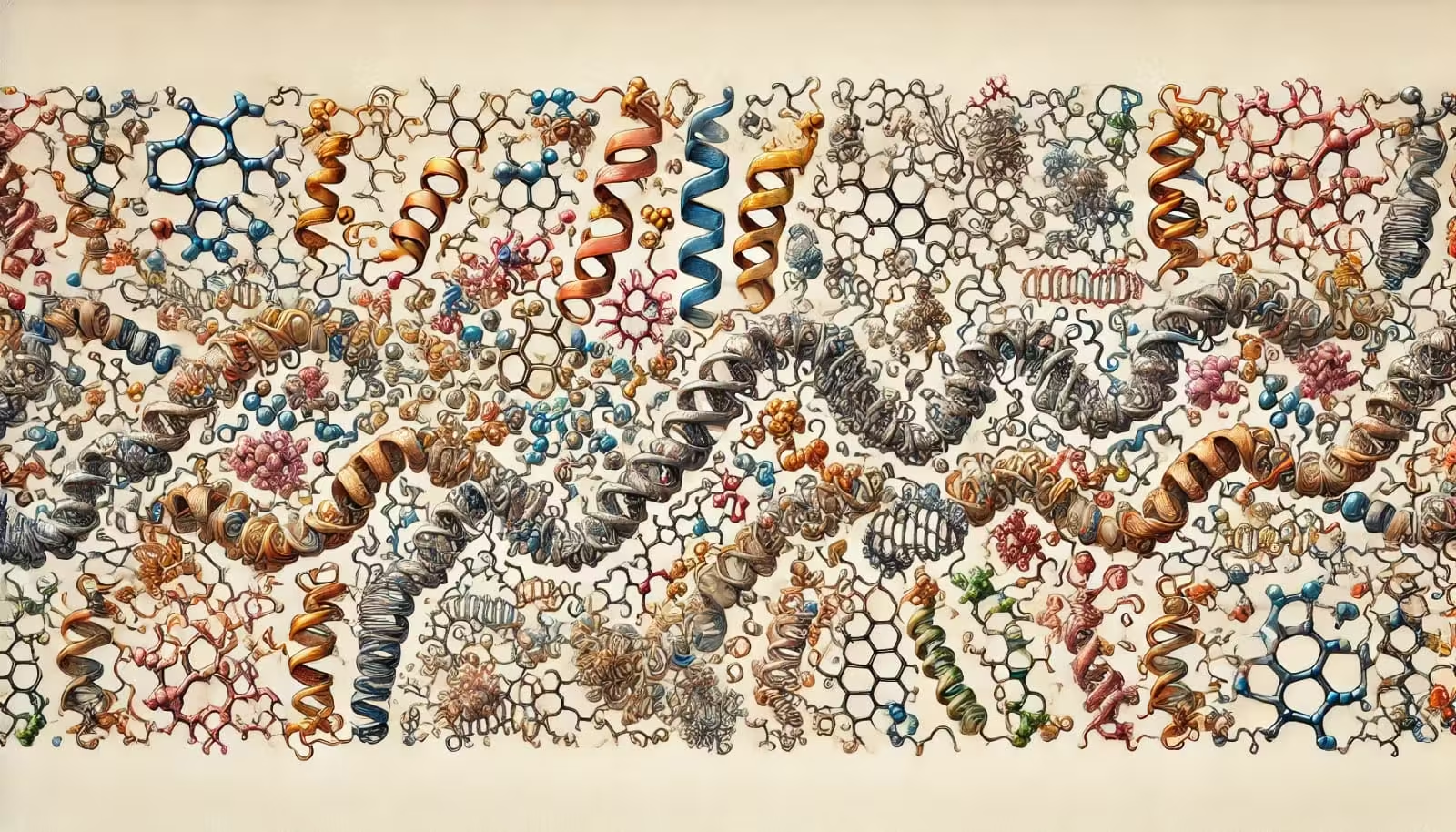Table of Contents
Quinoa vs Couscous
Due to its many culinary uses quinoa a highly nutritious seed native to South America’s Andes Mountains is frequently used as a grain. It is well known for having a complete protein profile meaning it has all nine of the essential amino acids. This makes it a great option for vegans and vegetarians. Quinoa is also high in minerals like magnesium, iron and potassium as well as vitamins like B vitamins and dietary fiber. Its preparation is simple: after washing to get rid of its natural covering (saponin), cook for approximately fifteen minutes.
Quinoa is a flexible ingredient for salads, side dishes and main meals because of its mild, nutty flavor and light, fluffy texture. In order to accommodate anyone with gluten sensitivity it is also gluten free.
Conversely, couscous is a kind of pasta that is typically found in North African cooking. A mainstay in many Moroccan and nearby regional dishes, couscous is made from steamed and crushed durum wheat. Though it is an excellent supply of carbohydrates and certain B vitamins it is not as nutritious as quinoa and is not a complete protein. It just takes a few minutes to steam or soak couscous in boiling water, making preparation quick and simple. It is frequently used as a side dish or in salads, stews and pilafs because of its fluffy, light texture. But for individuals on a gluten free diet quinoa, is a preferable option because couscous is not gluten free.
| Aspect | Quinoa | Couscous |
|---|---|---|
| Origin | Native to the Andes Mountains in South America | Traditional to North Africa, particularly Morocco |
| Type | Seed (from the Chenopodium quinoa plant) | Pasta (made from steamed and crushed wheat) |
| Nutritional Profile | High in protein (complete protein with all essential amino acids), rich in fiber, vitamins (e.g., B vitamins), and minerals (e.g., magnesium, iron, potassium) | Lower in protein, not a complete protein, usually enriched with additional nutrients, good source of carbohydrates and some B vitamins |
| Preparation | Rinse to remove saponin coating, then cook for about 15 minutes | Steam or soak in hot water for a few minutes |
| Texture | Light, fluffy, with a slight nutty flavor | Light and fluffy, mild flavor |
| Flavor | Mild and nutty | Mild and slightly earthy |
| Uses | Versatile; used in salads, side dishes, and main courses | Commonly used as a side dish, in salads, stews, and pilafs |
| Dietary Restrictions | Gluten-free; suitable for those with gluten sensitivities | Contains gluten; not suitable for gluten-free diets |
| Cooking Time | About 15 minutes | A few minutes |
| Shelf Life | 6-12 months when stored in an airtight container in a cool, dry place | 6-12 months when stored in an airtight container in a cool, dry place |
| Cultural Significance | Integral to traditional Andean diets | Staple in North African cuisine |

Quinoa vs Couscous Nutrition
| Nutrient | Quinoa (1 cup, cooked) | Couscous (1 cup, cooked) |
|---|---|---|
| Calories | 222 kcal | 176 kcal |
| Protein | 8.1 grams | 5.8 grams |
| Total Carbohydrates | 39 grams | 36 grams |
| Dietary Fiber | 5 grams | 2.2 grams |
| Sugars | 1.6 grams | 0.6 grams |
| Total Fat | 3.6 grams | 0.3 grams |
| Saturated Fat | 0.4 grams | 0.1 grams |
| Monounsaturated Fat | 0.6 grams | 0.1 grams |
| Polyunsaturated Fat | 1.4 grams | 0.2 grams |
| Cholesterol | 0 mg | 0 mg |
| Calcium | 31 mg | 16 mg |
| Iron | 2.8 mg | 1.1 mg |
| Magnesium | 118 mg | 22 mg |
| Phosphorus | 281 mg | 39 mg |
| Potassium | 318 mg | 160 mg |
| Vitamin B6 | 0.2 mg | 0.1 mg |
| Folate | 77 mcg | 27 mcg |
| Vitamin C | 0.9 mg | 0 mg |

Difference in nutrition of Quinoa vs Couscous
Quinoa has more protein at 8.1 grams versus 5.8 grams, and it is a complete protein food; it contains all essential amino acids.
Quinoa has far more fiber-5 grams in contrast to 2.2 grams of protein-which maintains good digestion and health in general.
Quinoa has more fats, but they are healthy ones-like polyunsaturated fats.
Quinoa has a higher content of magnesium, phosphorus, and potassium, essential minerals compared to couscous.
Quinoa gives one more extra folate and vitamin B6 than couscous would do, thereby adding to its better general nutritional value.
Whereas both are nutritionally useful, their nutritional profiles are quite different, therefore making quinoa so much healthier on the whole.
Post you may also like to read: Green Onion: Chives vs green onion, Green Onion Health Benefits
Quinoa vs Couscous for weight loss
This is a comparison that emphasizes losing weight:
Quinoa Nutritional Content : Quinoa has a higher protein and fiber content than couscous due to its high nutrient density. One cup of cooked quinoa provides around 8.1 grams of protein and 5 grams of dietary fiber.Because they keep you fuller for longer these nutrients assist promote satiety and decrease overall calorie intake.
Quinoa helps to regulate hunger and energy levels since it has a low to moderate glycemic index, which means it affects blood sugar levels more gradually.
Calories : Approximately 222 kcal per cup of quinoa is slightly higher in calories than 176 kcal per cup of couscous. But because it has more protein and fiber it may be a more filling option and result in less calories consumed overall.
The nutritional content of couscous is lower than that of quinoa in terms of both protein and fiber. One cup of cooked couscous provides roughly 2.2 grams of fiber and 5.8 grams of protein. Because of its reduced fiber content it might not satisfy your hunger as long as quinoa.
Glycemic Index : The higher glycemic index of couscous may cause blood sugar levels to climb more quickly and possibly increase hunger shortly after eating.
Calories : Compared to quinoa couscous has fewer calories per serving (176 kcal per cup). On the other hand because it is less filling its ability to suppress hunger may not last as long.
Because of its increased protein and fiber content, which can aid in satiety and appetite control, quinoa might be a superior choice for weight loss. Its glycemic index is lower which contributes to blood sugar stabilization. Despite having less calories, couscous might not give the same feeling of fullness or long-lasting energy, which could encourage overeating or frequent snacking. Therefore, adding quinoa to your diet may have additional advantages for controlling your weight.
For fitness blogs you should check this out.
Frequently Asked Questions Quinoa vs Couscous
What is the main difference between Quinoa vs Couscous?
The main difference between Quinoa vs Couscous is that Quinoa is a seed, while couscous is made from crushed durum wheat, making it a type of pasta
Which is more nutritious in quinoa vs couscous?
More nutritious in quinoa vs couscous is Quinoa is higher in nutrients and contains fiber, vitamins, minerals, and full protein. Couscous is a good source of carbohydrates even if it is lower in nutrients.
Is quinoa gluten-free?
Yes it is.
Which is higher in protein in quinoa vs couscous?
Quinoa vs Couscous quinoa has more protein.
This article is all about quinoa vs couscous. If you need more information about quinoa vs couscous or any other do comment.

Ankush Kumar is a professional content writer and the founder of Healthnick.com. He is a health and wellness enthusiast with a deep interest in nutrition, fitness and holistic living. Harish is committed to delivering research-based insights on various health topics. He enjoys exploring new trends in health, experimenting with nutritious recipes, and staying active.






